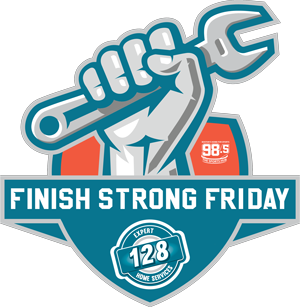For the most part, boilers are predictable and reliable. The better brands do a great job of heating your home, and if they’re running efficiently they’re also helping you save money on your Wakefield energy bills
But even the best-made and most reliable boilers can break down and put you in a bind. When that bind becomes a genuine emergency, you need someone on your side who knows your boiler inside and out and can fix it right away.
It’s also important to know what to do when an emergency strikes, so let’s review the necessary steps you’ll need to take and the information you need to have, from recognizing an emergency to the actual emergency repair process.
Recognize the Boiler Emergency
Sometimes it’s hard to recognize a boiler emergency. That’s especially true with older boilers, or even younger ones where a problem has been overlooked or ignored for a significant amount of time.
Three are three signs that are unmistakable, though, regardless of the age and condition of your boiler:
o No heat
This sign is obvious, of course, but it’s important not to panic. There’s a big difference between being at home and recognizing the lack of heat right away versus coming home after a long day at work to discover the inside of your home demands sweaters and jackets to stay warm.
The next step is to call 128 Plumbing, but there are a couple of other things you need to do that are related to the emergency.
0 You smell gas
As bad as it is to not have heat, smelling gas is worse. It can be potentially life threatening, especially if the odor is strong and pervasive throughout your home.
It’s also important to understand why you’re smelling gas. In its natural state gas is odorless, but utility companies typically add an odor that’s unmistakable—think rotten eggs or sulfur.
That’s when you need to open some windows, even in the winter, then get on the phone to us fast to we can help with your emergency.
o Your boiler is leaking
Some people become so panicked by the lack of heat that they forget to do a detailed check of the boiler itself, and in some cases they miss the small puddle of water spreading around it.
Depending on the exact problem, though, that puddle can spread fast. It can actually flood your basement, which can lead to mold and mildew issues after the cleanup.
Before you call us, find your water shutoff valve. It’s usually somewhere in your basement, and most homeowners are aware of where it is.
Turning it off can save you hundreds of dollars, and it will also make it easier for us to work on your boiler.
The Three Most Common Boiler Repairs
Now that you know how to recognize an emergency, let’s talk about the repairs we’ll likely do when we arrive.
o The no heat problem
Fixing a boiler that’s not producing heat can be challenging, but our HVAC techs, plumbers and electricians have dealt with this problem in thousands of different situations.
The problem often starts in your boiler’s ignition system, but there are other possibilities. There may be issues with a broken thermostat, or a broken heat pump.
It’s important to note that none of these fixes are DIY, and even the diagnostic process should only be done by a professional. You need to call us right away so we can do a thorough evaluation.
o Leaking
Boiler leaks can have several causes. The most common is corrosion, but corrosion can occur in different parts of the boiler.
The most common fix is to replace the pressure relief valve and the boiler pump, but if corrosion is present it’s important to have one of our techs or plumbers go through the entire diagnostic process.
o Kettling
Kettling is an unusual problem that typically manifests in the form of unpleasant noises coming from the boiler’s heating unit.
While it may be possible to flush out the system and restore the boiler to working condition, the typical solution when this happens is a complete boiler replacement.
Avoiding the Heat Repair Emergency: Know Your Boiler
If you don’t have the relevant boiler information handy before you call us in an emergency situation, we’ll walk you through some basic questions.
Once we do, though, it’s worthwhile to do some homework about how your boiler works and what you’re looking for when you check the operation.
Knowing the make and model number of your boiler is important, but you can help yourself out a great deal by going above and beyond in your research.
It’s easy to find out which parts are most likely to fail in an emergency, and it’s even easier to find out the cost range for those parts if you do have to have any of them replaced.
For most boilers, the most critical operating parameter is the water pressure. Boilers typically have a series of readable bars in a small glass window, and those bars should always be at the same level.
Usually that number is 12-15 psi, so if it reading is off, it’s a sign that you need to call us to head off an emergency.
There are several other ways you can check your boiler performance. Boilers have at least one valve, and the pressure relief valve is the one you’re looking to assess if you’re leaking water.
There are also temperature gauges you can check. These monitor the thermostat temperature and keep it within prescribed safety limits, and there’s also a temperature gauge that will tell you the temperature of your circulating pump.
Becoming knowledgeable about these things can save you a lot of money, and it can help us help you when it comes to boiler performance and efficiency.
Dealing with knowledgeable customers makes it easier for us to solve problems and increase boiler performance, so it’s well worth the small amount of time it takes to learn some of the basics.
Make the Right Repair Call for Your Boiler Emergency
If you’re having a boiler emergency, you need to call us right away. The numbers are (888) 419-4233 or (781) 670-3261, and we’ll do our best to get to you right away.
You can also go to 128Plumbing.com and start a live chat, and we have some great blogs and articles there to help educate you about how our emergency boiler service works and what’s usually involved.


